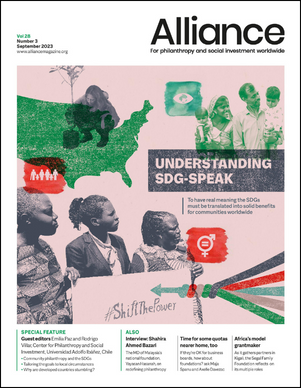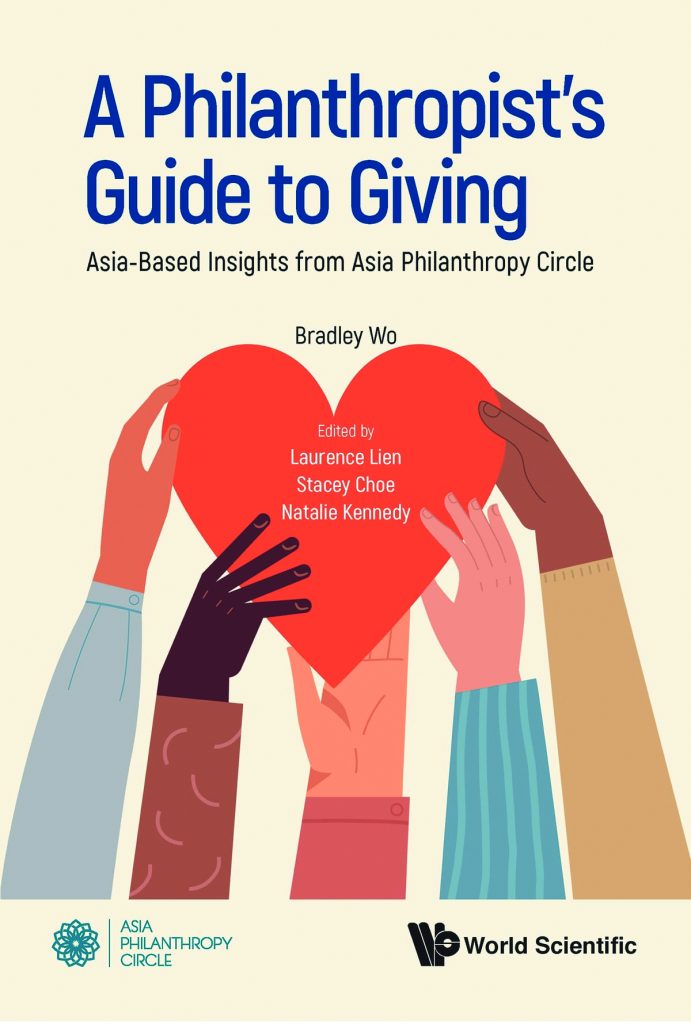Reviewed by Ingrid Srinath, founder director, Centre for Social Impact and Philanthropy, Ashoka University
Asian philanthropists frequently lament the dominance of ‘western’ thinking and models in the sector and the lack of access to more locally relevant expertise. In A Philanthropist’s Guide to Giving, Bradley Wo draws upon the experience of members of the Asia Philanthropy Circle to redress this gap. Through tools, tables, tips and more, the book seeks to enable philanthropists, their families and their teams to hone their vision, strategy, governance and evaluation processes at any stage of their philanthropic journeys. Case studies from peers offer relatable, real-life experience, learning and inspiration on each of the book’s topics and expert advice and deep dives permit greater detail for interested readers.
The book is enriched by the range of philanthropic experiences captured, drawing on fortunes made in fields as diverse as funeral services, mining, media, pharmaceuticals, tobacco, shipping, banking, technology, energy and financial services. Combined with the six broad variants of giving the book defines – philanthropy based on personal experience, family, heritage and faith traditions, legacy building and impact seeking – it illustrates how these personal histories help shape goals, approaches, styles and strategies.
Lucid primers on strategy, the uses and limitations of theories of change, the range of legal forms and jurisdictions available, approaches to governance, due diligence, partnership and collaboration, and evaluation of the impact of both programmes and organisations are presented with real-life examples that make them accessible to readers at any level of expertise.
The focus on the particular dynamics of family philanthropy adds to the book’s relevance in an Asian context. As does its recognition that many governments across Asia expect philanthropy to operate in roles complementary to public policy. So, too, the fact that both structured philanthropy and a formal nonprofit sector are nascent in many Asian countries, which influences strategic choices between establishing operating or grantmaking foundations, as well as the intensity of engagement with nonprofit partners. Refreshingly, several of the philanthropists cited have chosen to invest in building data and research infrastructure, another critical gap in most Asian countries.
Most importantly, the book seeks to define the unique role of philanthropy vis-à-vis state and market not only as compensation for gaps in public service delivery but also for bold, innovative, risk-taking and social norm shaping especially on underserved themes and in amplifying the voices of excluded communities.
A quote by Laurence Lien, chair and founding CEO at Asia Philanthropy Circle and one of the book’s editors, sums up the critical niche it occupies: ‘I hope this will also prompt philanthropists in Asia to appreciate what is happening in our backyard. We do not have to look to the West, particularly the US, for models and answers. This is not a competition, but a recognition that we need to evolve something different for Asia given our unique context and culture.’
About the book
Author: Bradley Wo. Edited by Laurence Lien, Stacey Choe and Natalie Kennedy
Published by: World Scientific
To order: tinyurl.com/philanthropists-guide-wo



Comments (0)
The most meaningful thing is that the book identifies the special role of charitable activities. From there, identify gaps and compensate for mistakes bob the robber
The book outlines six different types of giving: philanthropy based on personal experience, family, heritage and spiritual traditions, legacy building, and impact seeking. By combining these types of giving, it shows how aims, techniques, styles, and strategies are shaped by human histories.